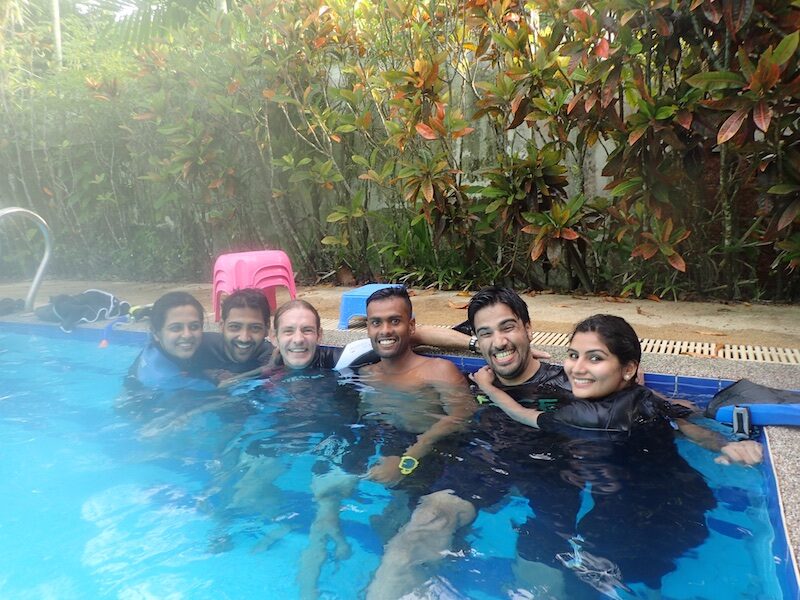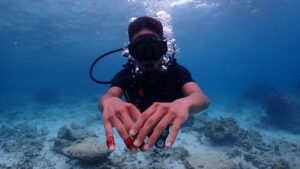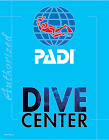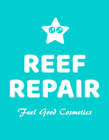
Can I Scuba Dive Even Though I Can’t Swim?
This is one of the questions we get asked most frequently by our customers – Can I Scuba Dive Even Though I Can’t Swim?
And the answer is YES – non-swimmers CAN scuba dive!
Do I need to be able to swim to Scuba Dive? You do not need to be able to swim or to have had any experience in the ocean to try Scuba Diving 🙂
Wherever you dive in the world, the PADI Discover Scuba Diving programme has been designed to give you a safe and comfortable scuba diving experience even if you can’t swim. So you don’t need to worry about your first ever diving experience – on this programme you’re in good hands.
In over 10 years in the diving industry we have had plenty of experience with non-swimmers and even the occasional person who has a fear of water! It is not unusual that someone who is fearful of being in the sea still has a compelling urge to go scuba diving. It just proves what a powerful attraction our beautiful underwater world has. The feedback we have is that the experience is literally life-changing!
You can book an intro session to swimming with us ahead of your day out if you wish, where you can spend time learning techniques and simply getting used to water in a confined pool session. For more info contact us here
First Time Nerves
If you’re a non-swimmer it is only natural that you will be nervous about your first experience. You may be filled with both trepidation and excitement. Express any concerns you have to your instructor and ask questions – there are no silly questions when it comes to scuba diving.
We are frequently asked ‘how deep will I go’? Well the answer is that it depends on you and how comfortable you feel under the water. The maximum depth for this programme is 12 metres but you don’t need to go to this depth to be scuba diving and there is often plenty of exhilarating marine life to see at shallow depths.
For this programme, your PADI Instructor will go over some basic skills with you and how your equipment works. Then you’ll answer a few questions to make sure you’ve understood what you have been taught.
When it’s time to enter the water, your instructor will make the final checks ensuring that you are safe, the weights are securely fastened and the buoyancy control device is inflated correctly.
Taking Your First Breaths
In the water it is important that you stay close to your instructor – this is what is called the buddy system. Those first few breaths you take underwater are truly amazing, a little unnatural to begin of course and once you start to relax your Scuba Instructor will introduce some basic diving skills to you which include clearing your mask of water and recovering & clearing your regulator. The most important rule in scuba diving is to breathe continuously and NEVER hold your breath.
You will then explore the incredible underwater world with your Instructor who will make any necessary changes needed to ascend and/or descend allowing you to enjoy the beautiful marine life.
Dive Sites
 Coral reefs generally thrive in shallow, warm waters that get a lot of sunlight and they provides the ideal environment for beginners who want to see the fascinating fish and marine life, as well as the vibrant colours that exist underwater in the tropics.
Coral reefs generally thrive in shallow, warm waters that get a lot of sunlight and they provides the ideal environment for beginners who want to see the fascinating fish and marine life, as well as the vibrant colours that exist underwater in the tropics.
Here in Phuket the best dive sites for beginners are Racha Noi and Yai with lovely shallow waters which are perfect for performing your skills, colourful corals and interesting marine life such as turtles, parrotfish barracuda and Anemone fish (Clown Fish). Racha Noi and Racha Yai’s dive sites are well known for excellent visibility of up to 30 metres and are located in beautiful sheltered bays.
So there you have it – Can I Scuba Dive Even Though I Can’t Swim?
Yes you can! Go ahead and dive in – you won’t regret it!



